MercoPress. South Atlantic News Agency
Tag: Electric Vehicles
-
Tuesday, January 20th 2026 - 02:16 UTC
BYD ship reaches Argentina with record delivery of nearly 5,800 electric and hybrid vehicles
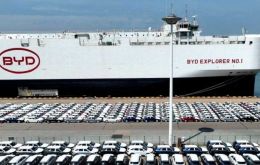
The BYD Changzhou car carrier docked on Monday at Terminal Zárate, in Argentina’s Buenos Aires province, and unloaded around 5,800 hybrid and electric vehicles shipped from China—described by local coverage as the largest single import landing of its kind in the country.
-
Monday, December 1st 2025 - 21:01 UTC
Uruguay leads Latin America in electric car sales
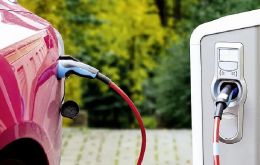
Uruguay has cemented its position as the undisputed leader in Latin American electric vehicle (EV) adoption, achieving a remarkable market penetration of 27.97% in the third quarter of 2025, the Latin American Zero Emissions Observatory (ZEMO) reported. The South American country is way ahead of its nearest competitor (Costa Rica, with 16.26%).
-
Tuesday, December 26th 2023 - 10:20 UTC
Tariffs on electric vehicles avoided as UK and EU extend trade rules

The UK and EU have agreed to extend trade rules on electric vehicles until the end of 2026 to keep costs down for manufacturers and consumers, Prime Minister Rishi Sunak has announced.
-
Monday, January 3rd 2022 - 09:19 UTC
China cuts subsidies to the manufacture of electric vehicles

China has announced it will cut subsidies for green energy vehicles such as electric cars by 30%, beginning January this year. A release from the Ministry of Finance said that the subsidies policy, NEV 2022 will be definitively closed by 31 December 2022.
-
Thursday, November 11th 2021 - 09:01 UTC
UK pledges HGVs will be zero-emission by 2040; unveils new chargepoint design
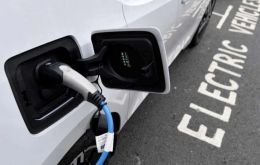
The United Kingdom has announced all-new road vehicles in the country will be zero-emission within the next two decades, while charge points are to be the main focus to adapt to the EV revolution.
-
Tuesday, July 20th 2021 - 09:20 UTC
Chile leads the region on its way to sustainable energy-powered cars
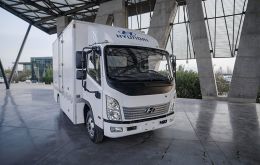
As the leading country in the region on the road to new sources of energy for vehicles, Chile last week added a new charging point for battery-powered engines next to the Nueva Angostura tollbooth and is the first of a total of 5 to be implemented on Ruta 5 Sur between Santiago and Talca.
-
Tuesday, July 20th 2021 - 09:12 UTC
Europe's push for drastic shift towards electric vehicles may find objections
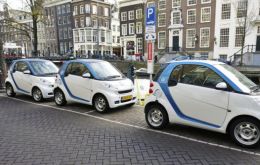
The European Commission has voted last week to ban the sale of vehicles that run on gasoline or diesel by the year 2035 to change the energy matrix in transport.
-
Tuesday, July 20th 2021 - 09:05 UTC
Argentina and Bolivia have bills in Parliament to boost transitioning to e-cars
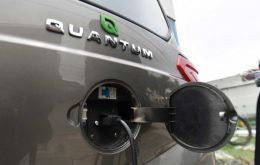
Just as the European Commission sent a bill last week to the European Parliament regarding electric vehicles, the Governments of Argentina and Bolivia are also taking similar paths.
-
Wednesday, July 14th 2021 - 09:00 UTC
Lack of semiconductors and electronic components limiting Brazil's car production
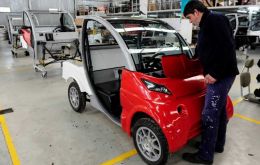
Brazil's Association of Automotive Vehicle Manufacturers, ANFAVEA announced that export expectations for 2021 should reach 389,000, a significant increase over the previous estimate of 353,000. Furthermore, overseas sales will stand at 20% over the 2020 figure.
-
Wednesday, July 14th 2021 - 08:30 UTC
Volkswagen picks Uruguay to make e-cars Latin American landing

The traditional German automaker Volkswagen has chosen Uruguay as the first country in Latin America to receive its assortment of fully electricity-powered models, it was announced during a ceremony which was attended by President Luis Lacalle Pou.
